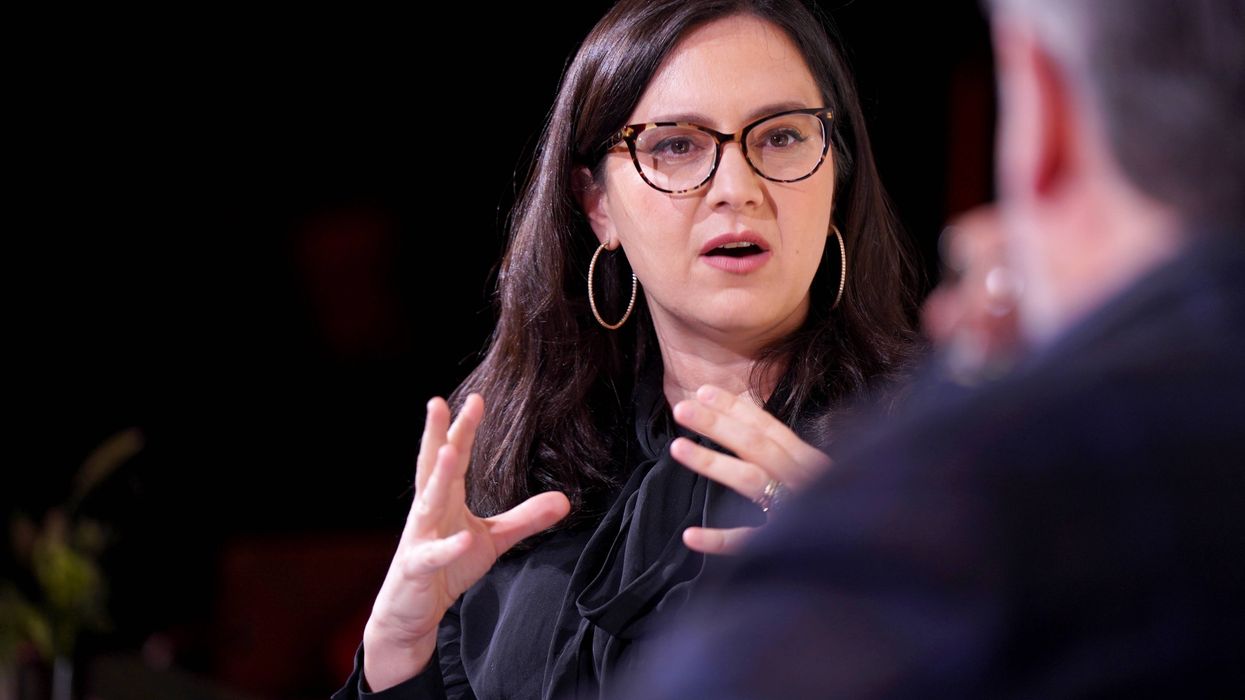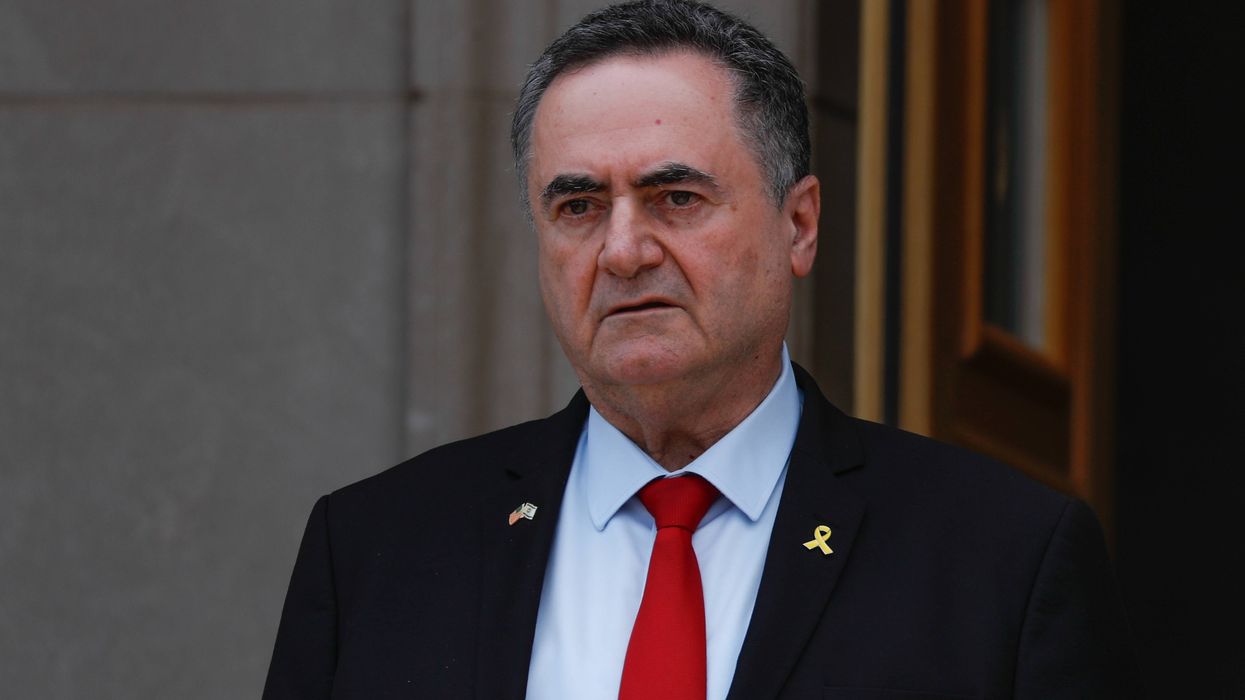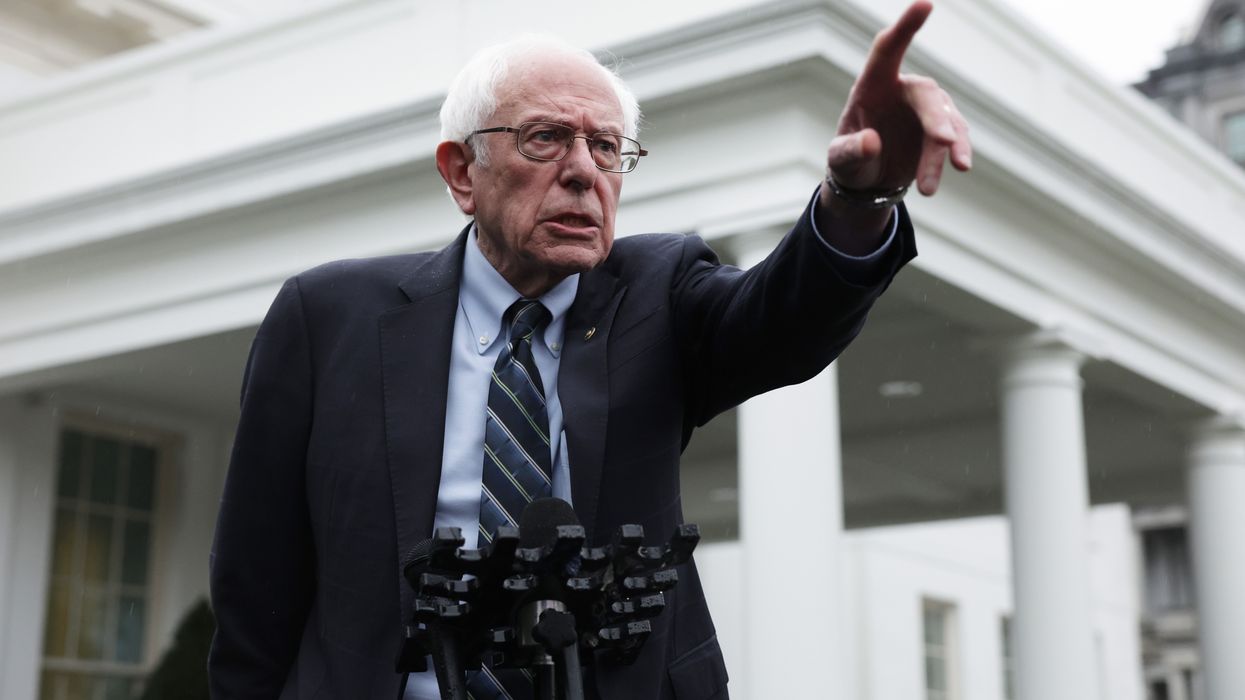November, 20 2009, 10:12am EDT

Free Press Urges New York City Council to Support Open Internet
NEW YORK
Testifying before the New York City Council today, Free Press
delivered signatures from more than 4,000 New Yorkers calling for
strong open Internet rules. The City Council is considering a
resolution (712A-2007) urging the federal government to protect Net
Neutrality.
"We are greatly encouraged that the New York City Council is taking
the lead on the vital issue of Net Neutrality and believe this
resolution will send a strong message to Washington and serve as a
model for other cities across the country," said Timothy Karr,
campaign director of Free Press, who testified at the hearing. "The
right policies will continue to advance the most democratic
communications technology ever devised. The wrong policies will
jeopardize this openness and hasten the global decline of U.S.
broadband services. We need to pass the right policies right now."
Thousands of Free Press activists also sent letters this week to
members of New York's congressional delegation, urging them to
co-sponsor the Internet Freedom Preservation Act (H.R. 3458) and
support the work of the Federal Communications Commission to institute
rules that would protect the open Internet.
Full Text of Karr's Comments:
Free Press is grateful for the opportunity to testify before the New
York City Council today. As public advocates, Free Press strongly
supports policies to protect an open Internet. We are greatly
encouraged that the Council is taking the lead on the vital issue of
Net Neutrality and are supporting efforts in other cities to follow
your example.
On Tuesday afternoon we asked Free Press members from New York City
to send a note to Congress about the City Council's efforts. In little
more than 48 hours, more than 4,200 New Yorkers put their names on a
letter that "applauds the City Council for considering this resolution"
and calls on Congress to stand behind a strong FCC ruling. I am
delivering a copy of their signatures to the Council with my testimony.
The FCC is weighing a Net Neutrality rule that will determine
whether the Internet will remain a tremendous engine for free speech,
innovation and equal opportunity. There is a great deal of passion
surrounding this issue as much is at stake for the tens of millions of
Americans who rely upon the Internet every day.
Despite the debate, I don't believe anyone on today's panels or in this room would dispute these two notions:
First, over the past 40 years, the Internet has emerged as an unprecedented tool for:
- spreading innovative ideas,
- increasing public participation in our democracy, and
- fostering economic opportunity, even in the most overlooked communities.
Second, I don't believe that we would disagree that we need sound
public policies to encourage faster, more open and affordable Internet
access for everyone in the country.
The right policies will continue to advance the most democratic
communications technology ever devised. The wrong policies will
jeopardize this openness and hasten the global decline of U.S.
broadband services.
We need to pass the right policies right now.
A lot has changed since I testified before you on Net Neutrality in 2007:
- We have a new President who has repeatedly pledged "to take a back seat to no one in [his] commitment to Net Neutrality;"
- President Obama appointed the principle architect of his Net Neutrality agenda, Julius Genachowski, to head the FCC;
- House Speaker Nancy Pelosi and Commerce Committee Chair Henry
Waxman have become outspoken supporters of the FCC's efforts to pass a
strong Net Neutrality rule. - And, perhaps most importantly, more than 1.6 million people
across the country have contacted their elected representatives urging
them to support Net Neutrality.
Unfortunately, though, a lot has stayed the same, too:
In the first three quarters of 2009, AT&T, Comcast, Verizon, and
their trade groups spent nearly $75 million and hired more than 500
lobbyists to discredit an open Internet.
And that's just the money we know about. They have also funneled
untold sums to phony front groups, think tanks and populist-sounding PR
campaigns. As we've seen with the health care and global warming
debates, any effort at reform will come under a relentless assault from
deep-pocketed institutions that prefer the status quo.
The money against Net Neutrality is being spent to lock in incumbent
control in America. The present phone and cable duopoly provides 97
percent of fixed broadband connections into American homes. More and
more users are staring to use these connections to create and share
media, and in response these companies have moved rapidly to
reverse-engineer the openness that's the hallmark of the Internet.
The Internet's True Marketplace of Ideas
The history, however, is clear. The Internet was born in a
regulatory climate that guaranteed strict nondiscrimination. Internet
pioneers like Vinton Cerf and Sir Tim Berners-Lee always intended the
Internet to be an open and neutral network. And nondiscrimination
provisions have governed the nation's communications networks since the
1930s.
Originally the Internet's physical wires were regulated separately
from the content flowing over them. The reason for this was simple: to
keep monopoly owners of infrastructure from using their power to
distort the Web's free market.
This "common carriage" protection worked brilliantly. For two
decades, the Internet thrived with low barriers to entry, equal
opportunity and consumer choice. Remove Net Neutrality, and this
marketplace tilts in favor of the network owners. And that's what is
happening.
After intense corporate lobbying, the FCC pulled the carpet from
beneath this marketplace of ideas, in 2005 removing the
nondiscrimination protections that guaranteed Net Neutrality.
Soon after, the top executives of phone and cable companies
announced their intention to change the Internet forever. In the pages
of the Washington Post, BusinessWeek, Wall Street Journal, they spoke
of plans to become the Internet's gatekeepers and begin discriminating
against content that doesn't generate extra income for them.
Internet Policy: Who Benefits?
Some will argue before you today that the Internet has prospered
free of regulation. This is a red herring. The Internet has always had
baseline consumer protections written into law.
The real question isn't: "Should we regulate the Internet?" Without
forward thinking broadband policies, America's economy will suffer. The
real question should be: "For whom do we create this policy?"
The phone and cable companies have held Washington's policymaking
process in their grip for far too long. But for all their talk about
"deregulation," the cable and telephone giants work aggressively to
force through regulations that:
- protect their market monopolies and duopolies,
stifle new entrants and competitive technologies in the marketplace, and - increase their control over the content that travels over the Web
It's now up to the FCC to pro-actively reinstate Net Neutrality.
Without this anti-discrimination rule, phone and cable companies will
have both the incentive and ability to shut the doors on our 40-year
experiment with open media.
We need to protect the open Internet as the essential infrastructure
of our time. It is the social tool with which we will build a more
prosperous, open and just nation. Free Press is encouraged by the
Council of the City of New York efforts to adopt Resolution No. 712. It
will have far reaching implications.
Free Press was created to give people a voice in the crucial decisions that shape our media. We believe that positive social change, racial justice and meaningful engagement in public life require equitable access to technology, diverse and independent ownership of media platforms, and journalism that holds leaders accountable and tells people what's actually happening in their communities.
(202) 265-1490LATEST NEWS
YouTube, TikTok Deleted ‘60 Minutes’ CECOT Clips Amid Paramount Takedown Push
The segment on the notorious torture prison—where the Trump administration has been unlawfully deporting Venezuelans—went viral on social media after being inadvertently aired in Canada.
Dec 23, 2025
Websites including YouTube and TikTok this week removed posts of a CBS News "60 Minutes" segment on a notorious prison in El Salvador, where Trump the administration has been illegally deporting Venezuelan immigrants, after being notified that publishing the clip violated parent company's copyright.
The segment on the Terrorism Confinement Center (CECOT)—which was intended to air on Sunday's episode of "60 Minutes"—was pulled by right-wing CBS News editor-in-chief Bari Weiss, who claimed that the story "was not ready" for broadcast, despite thorough editing and clearance by key company officials.
“Our story was screened five times and cleared by both CBS attorneys and Standards and Practices," said "60 Minutes" correspondent Sharyn Alfonsi, who reported the segment. “It is factually correct. In my view, pulling it now, after every rigorous internal check has been met, is not an editorial decision, it is a political one.”
The segment—which can still be viewed on sites including X—was shared by social media users after a Canadian network received and broadcast an original version of the "60 Minutes" episode containing the CECOT piece prior to CBS pulling the story. The social media posts containing the segment were reportedly removed after CBS parent company Paramount Skydance filed copyright claims.
A CBS News representative said that “Paramount’s content protection team is in the process of routine take down orders for the unaired and unauthorized segment.”
Weiss—who also founded and still edits the Paramount Skydance-owned Free Press—has faced criticism for other moves, including presiding over the removal of parts of a previous "60 Minutes" interview with President Donald Trump regarding potential corruption stemming from his family’s massive cryptocurrency profits.
On Tuesday, Axios reported that Weiss is planning a broad overhaul of standards and procedures at the network, where she was hired by Paramount Skydance CEO and Trump supporter David Ellison in October, despite a lack of broadcasting experience.
Keep ReadingShow Less
Israeli Defense Minister Tries to Walk Back Vow to 'Never Leave Gaza,' Build Settlements
The remarks drew critical responses, including from other Israelis and the White House.
Dec 23, 2025
Israeli Defense Minister Israel Katz "said the silent part out loud" on Tuesday, then promptly tried to walk back his comments that his country would not only never leave the Gaza Strip, but also reestablish settlements in the decimated exclave.
Israel evacuated Jewish settlements in Gaza two decades ago, but some officials have pushed for ethnically cleansing the strip of Palestinians and recolonizing it, particularly since the Hamas-led October 7, 2023 attack and the devastating Israeli assault that followed.
The Times of Israel on Tuesday translated Katz's remarks—made during an event about expanding Beit El, a Jewish settlement in the illegally occupied West Bank—from Hebrew to English:
"With God's help, when the time comes, also in northern Gaza, we will establish Nahal pioneer groups in place of the settlements that were evacuated," he said. "We'll do it in the right way, at the appropriate time."
Katz was referring to the Nahal military unit that, in part, lets youths combine pioneering activities with military service. In the past, many of the outposts established by the unit went on to evolve into full-fledged settlements.
"We are deep inside Gaza, and we will never leave Gaza—there will be no such thing," Katz said. "We are here to defend and to prevent what happened from happening again."
The so-called peace plan for Gaza that US President Donald Trump and Israeli Prime Minister Benjamin Netanyahu announced at the White House in late September notably states that "Israel will not occupy or annex Gaza," and "the Israel Defense Forces (IDF) will withdraw based on standards, milestones, and timeframes linked to demilitarization."
Gadi Eisenkot, a former IDF chief of staff who launched a new political party a few months ago, responded to Katz on social media, writing in Hebrew, "While the government votes with one hand in favor of the Trump plan, it sells myths with the other hand about isolated settlement nuclei in the strip."
"Instead of strengthening security and bringing about an enlistment law that will bolster the IDF, the government, driven by narrow political considerations, continues to scatter irresponsible and empty declarations that only harm Israel's standing in the world," he added.
The White House was also critical of Katz's comments, with an unnamed official saying that "the more Israel provokes, the less the Arab countries want to work with them."
"The United States remains fully committed to President Trump's 20-point peace plan, which was agreed to by all parties and endorsed by the international community," the official continued. "The plan envisions a phased approach to security, governance, and reconstruction in Gaza. We expect all parties to adhere to the commitments they made under the 20-point plan."
Later Tuesday, Katz's office said that "the minister of defense's remarks regarding the integration of Nahal units in the northern Gaza Strip were made solely in a security context. The government has no intention of establishing settlements in the Gaza Strip. The minister of defense emphasized the central principle of border defense in every arena: The IDF is the first and last line of defense for Israel's citizens, and the state of Israel relies for its protection solely on it and on the security forces."
Katz became defense minister in November 2024, just weeks before the International Criminal Court issued arrest warrants for his fired predecessor, Yoav Gallat, and Netanyahu over Israel's assault on and blockade of Gaza. When Katz took on the new role after serving as foreign minister, Palestine defenders accused the prime minister of swapping one "genocidal lunatic" for another.
Israel faces an ongoing genocide case at the International Court of Justice for its mass slaughter of Palestinians in Gaza. As of Tuesday, local officials put the death toll since October 2023 at 70,942, with another 171,195 Palestinians wounded, though global experts warn the true tallies are likely far higher.
At least 406 of those confirmed deaths have occurred since Israel and Hamas agreed to a ceasefire that took effect October 10. In a Monday letter demanding action from the White House, dozens of Democratic US lawmakers noted Israel's "continued bombardment against civilians, destruction of property, and insufficient delivery of humanitarian aid."
Keep ReadingShow Less
Sanders Slams Private Equity Scrooges Ending Paid Holidays for Walgreens Workers
"While the rich get richer, workers are struggling, and your decision to cut workers' paid vacation is making the problem worse."
Dec 23, 2025
Independent US Sen. Bernie Sanders on Tuesday urged the private equity firm that recently acquired Walgreens to reverse its decision to strip hourly workers at the second-largest US pharmacy chain of paid days off on Christmas and other major holidays.
After Sycamore Partners finalized its $10 billion purchase of Walgreens in late August, the pharmacy chain—now headed by CEO Mike Motz—eliminated paid holidays for New Year's Day, Memorial Day, Independence Day, Labor Day, Thanksgiving, and Christmas. Workers were notified of the move, which was first reported by Bloomberg, in October.
The move is typical of what private equity firms—sometimes called vulture capitalists—often do in order to maximize profits. In addition to slashing paid time off and benefits, they often reduce or freeze pay, fire workers, close locations, introduce aggressive sales targets, and reduce job security by replacing full-time positions with hourly or independently contracted workers. Walgreens announced last year that it planned on closing around 1,200 of its roughly 8,000 US stores, citing their struggling performance.
"This Thanksgiving, Walgreens' hourly workers faced the impossible choice between losing pay and spending the holiday with their loved ones," Sanders (Vt.)—who is the ranking member of the Senate Health, Education, Labor, and Pensions (HELP) Committee—wrote Tuesday in a letter to Sycamore Partners founder and managing director Stefan Kaluzny.
"Walgreens employs 220,000 employees, the vast majority of whom are hourly workers... Sycamore Partners' decision to cut paid holidays for these hourly workers is unfortunately not surprising," the senator continued. "The firm follows the private equity playbook of buying businesses and aggressively extracting profit while using and abusing workers."
"For example, just one year after Sycamore Partners purchased Staples, the firm extracted $1 billion from the company as it closed 100 stores and laid off 7,000 workers," Sanders noted. "That same year, Sycamore Partners drove Nine West into bankruptcy and was accused of siphoning off over $1 billion in funds."
"Meanwhile, from 2016-22, companies owned by Sycamore Partners racked up over $3 million in labor violations, including wage-and-hour and workplace safety and health violations," he added.
During the holiday season, we all want to spend time with our loved ones. And yet, just two months after buying Walgreens for $10 billion, the private equity firm Sycamore Partners stripped hourly workers of paid vacation, including Christmas and New Year’s Day. Shameful.
[image or embed]
— Senator Bernie Sanders (@sanders.senate.gov) December 23, 2025 at 9:41 AM
Sanders contrasted a reality in which "60% of Americans are living paycheck to paycheck" with the fact that "more private equity managers make over $100 million annually than investment bankers, top financial executives, and professional athletes combined."
"While the rich get richer, workers are struggling, and your decision to cut workers' paid vacation leave is making the problem worse," he stressed. "Some Walgreens workers make as little as $15 an hour. Cutting their paid leave will make it even more difficult for these workers to pay for housing, childcare, healthcare, and groceries."
"In short," Sanders concluded, "Sycamore Partners is forcing workers to sacrifice their basic needs for private equity profit."
Keep ReadingShow Less
Most Popular


